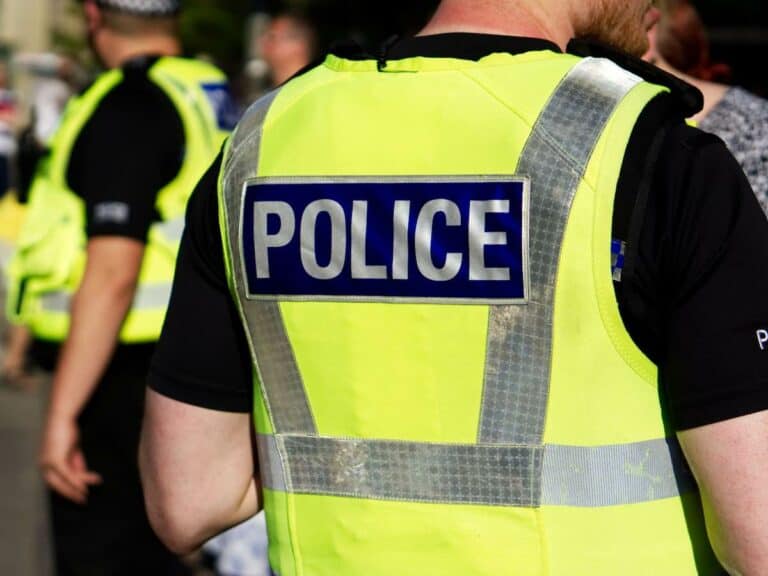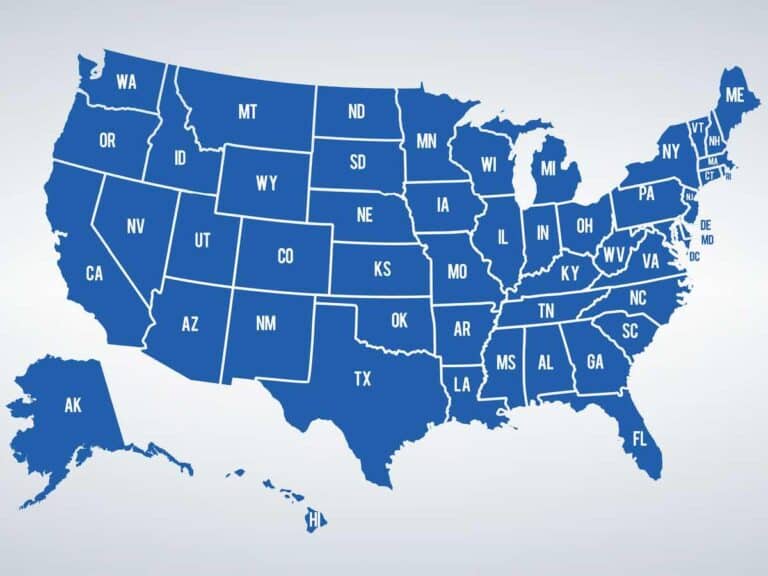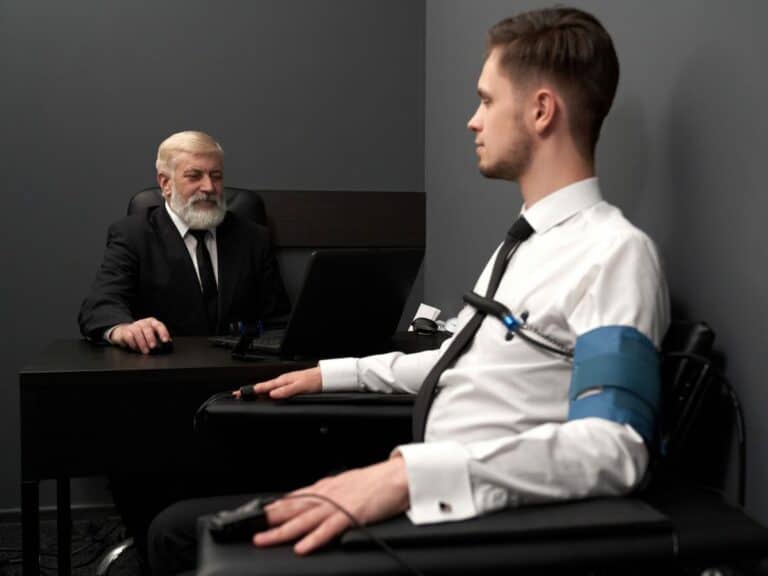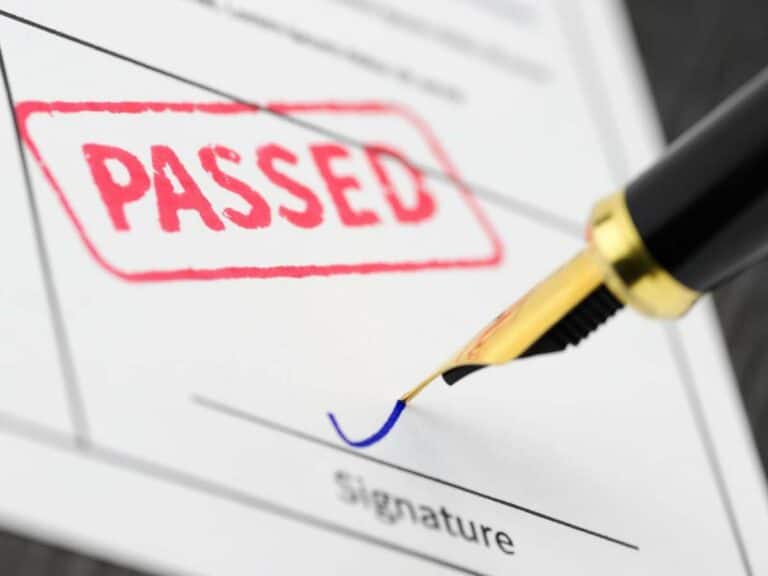What Happens If You Fail Polygraph Test
Being hooked up to a lie detector machine is stressful and terrifying. But the ordeal doesn’t end there — the result comes next, usually after a day. And whether it’s for hiring purposes or because you are being accused of something you didn’t do, nothing can be more devastating than failing the examination.
In most instances, failing a polygraph test warrants a retake to verify the initial result. Someone who gets a false positive result, which means that a truthful person is reported as deceitful, usually passes the exam the second time around. Either way, a lie detector test result is not admissible in most courts.
About to take a lie detector test and fear you might fail it? Read on.
Below, you will come across some of the reasons for having to undergo a polygraph test. Especially if you do not feel comfortable taking it or are surprised or unhappy with the result, it’s a good idea to know the possible consequences so that you can make smart decisions as well as avoid unnecessary stress and worry.

Pre-Employment Screening
It’s not uncommon for many federal, state and local government agencies and some private companies to require job applicants to subject themselves to a lie detector test. This is a common procedure, especially where potential employees will have access to large sums of money and prescription drugs or will be tasked with everyone’s safety.
When applying for law enforcement positions at the US Customs and Border Protection (CBP), for instance, candidates must undergo a lie detector examination as a part of the background check.
But the result of a polygraph test alone won’t determine whether or not the individual will be hired.
According to the CBP itself, the final result of a lie detector exam will be employed as part of the overall agency adjudication process for placement in a law enforcement position in the agency. It’s totally legal — the Anti-Border Corruption Act of 2010 requires all applicants applying for law enforcement positions with CBP to undergo a polygraph exam.
The result of a lie detector exam administered as a part of the pre-employment screening process for applicants for law enforcement positions at the CBP is valid for 2 years. Aspirants, in particular those who failed the examination, may choose to retake the polygraph test in order to be able to apply again after the said time period.
So, in other words, you will have to wait for 2 years before you can give applying another try.
There are a few main reasons why many of those who are applying for law enforcement positions at the CBP fail their lie detector exam, says the agency itself:
- Withholding information related to past indiscretions that are too embarrassing to them or that they believe will hinder them from earning a coveted position with the CBP.
- Intentionally attempting to manipulate the result of the polygraph test, which any experienced polygraph examiner can easily distinguish, thus prompting a deception verdict.
- Providing information during the lie detector examination that disqualifies them from getting a position with the CBP, such as the use of and distribution of illegal drugs.
Other than the CBP, many other federal, state and local government agencies require applicants to take a polygraph exam as a part of the pre-employment screening process.
It’s an SOP where the position to be filled up calls for a high degree of reliability, integrity and honesty.
Refrain from assuming that it’s only when applying to a governmental position that you will be asked to undergo a lie detector test beforehand. There are also various private companies that will require you to do the same in an attempt to determine whether or not you are suited for the job.
When applying for any of the following job positions, chances are that having a polygraph test — and passing it, too — is a standard part of the hiring process:
- Pharmacist
- Pharmacologist
- Pharmacy technician
- Security engineer
- Security guard
- Surveillance personnel
As an applicant, you can always decline to subject yourself to a lie detector test. This is especially true if you do not feel comfortable taking it for fear that it will open a can of worms. However, it can mean that you will lose your eligibility for the job position you are after.
Read Also: Jobs That Require Polygraph Tests
Business Theft of Fraud
Other than when applying for a job, a person may also be asked to take a lie detector test at any given time during the course of his or her employment if the circumstance calls for one.
It’s true that there’s the Employee Polygraph Protection Act (EPPA), which prohibits most private employers from conducting a polygraph exam on someone as a part of the pre-employment screening process or while the individual is employed. However, it’s important to note that not all employers or incidents are covered by the EPPA.
Case in point: a workplace incident in which an employee is reasonably suspected of involvement.
There are many things an employee can commit that may call for a lie detector test where applicable or necessary. They include, but are not limited to, the following:
- Monetary theft
- Inventory theft
- Intellectual property theft
- Misappropriation
- Embezzlement
- Industrial espionage
- Commercial sabotage
- Product tampering
- Property or merchandise damage
A few things have to be met before an employer can ask an employee to undergo a lie detector test. Leading the list is there should be a specific economic loss or injury to the company.
Equally important is the fact that the employer should have a basis for reasonably suspecting that the individual in question has something to do with the incident. And in order for this to be possible, there should be proof that the employee has access to the property or merchandise that is the subject of the investigation.
Besides a polygraph examiner, the employee must also be informed about the planned polygraph exam.
As a matter of fact, the EPPA says that the person should be given a written notice at least 48 hours (excluding weekends and holidays) in advance of the date and time of the scheduled lie detector examination. Also, it should be read by the employer to the employee, which is something that should be timed, dated and witnessed, too.
The following are just a few of the many guidelines when subjecting an employee to a lie detector test:
- The incident should be a specific investigation that’s still ongoing
- Procurement of a copy of the EPPA
- Hire a licensed (if applicable), experienced and insured polygraph examiner
- The statement must be signed by the polygraph examiner
- The statement must also be signed by someone who is authorized to legally bind the employee
- Provision of a written direction to the testing site (if held outside the workplace)
Even if an employee fails the lie detector test, the result alone cannot be used to discharge, discipline or discriminate against him or her. The same is true for refusing to participate in the examination.
How many times the person can take a polygraph test who fails it the first time will depend on the employer.
It’s also important to note that the verdict of a lie detector exam is not admissible in court even if there are enough grounds or reasons for the employer to submit the employee to a polygraph test. In states where it has admissibility, both parties, the employer and employee, must agree to use the result before it is deemed admissible.
Suspect Interrogation
The presence of a polygraph machine in police stations is quite common. The police department of Brook Park, Ohio, for instance, uses it for investigative purposes such as clearing people’s names from investigations or ascertaining whether or not they are involved in any way with a crime.
In the said department, like in many others, an in-office examiner is around to conduct the examination.
Meanwhile, the Westlake Police Department, also in Ohio, uses a lie detector instrument occasionally only. It is used at times to increase the investigator’s confidence in the information they’re obtaining during the interview.
It’s also not uncommon for many police departments to send individuals being investigated to examiners outside of the law enforcement agency. So, in other words, they let independent polygraph experts do the job. Some police departments, on the other hand, prefer to use other technologies, including Computer Voice Stress Analysis (CVSA).
Various agencies also use a polygraph for investigative purposes. They include:
- CIA
- FBI
- NSA
- US Air Force
- US Army
- US Capitol Police
- US Marine Corps
- US Marshals
- US Navy
The police and various investigative and intelligence agencies agree that a lie detector test is an important investigative aid. However, they are also well aware of the fact that it’s not a substitute for standard investigative techniques. But for many years now, a polygraph test is being used to:
- Verify the statements or testimonies of victims
- Establish the credibility of witnesses
- Evaluate whether the suspects are being truthful or deceitful
- Absolve innocent individuals who are surrounded by circumstantial or uncorroborated evidence
While law enforcers can use a polygraph result in order to build a case, they cannot utilize it, however, to accuse a suspect and put him or her behind bars.
In addition, it’s not all the time that a lie detector test is admissible in court — in many jurisdictions in the US, a polygraph exam has zero admissibility. In states where it can be accepted as evidence, it’s a must for both parties, the plaintiff and defendant, to agree to its use before it’s considered admissible.
When used for interrogation or other purposes, a polygraph may sometimes make an innocent person look guilty.
It’s what’s referred to as a false positive, which occurs when a truthful examinee is reported as being deceptive. A number of things can cause a false positive result. Stress and anxiety are some common examples. The same is true for certain medical conditions and medications that are undeclared before the examination.
There are instances, too, in which the polygraph examiner is the one responsible for a false positive, such as formulating the questions poorly or interpreting the chart badly.
Commonly, a false positive calls for a retake of the lie detector test for confirmation purposes.
Court Trial
The result of a lie detector test, in some instances, can be admissible in civil court or labor court — it’s rarely considered admissible in criminal court.
However, it’s important to note that, because of the EPPA, it’s not all the time that the result of a polygraph test can be used as a piece of evidence in court. As a matter of fact, in certain states or jurisdictions, it has no admissibility, which means that a person cannot be convicted or acquitted based on its result.
Some of the states where the use of a lie detector test result as evidence is prohibited include:
- Illinois
- Massachusetts
- New York
- Pennsylvania
- Texas
- Washington, DC
But just because a polygraph examination is admissible in some courts in the land doesn’t necessarily mean that it’s something that can be used by the judge to come up with a decision.
Where a lie detector test result has admissibility, both parties have to agree beforehand that it can be used as evidence. Also, it’s important for the exam to be reliable enough as to meet the standards commonly used by courts when accepting polygraph exams, such as the Frye standard and the Daubert standard.
Given that a polygraph test can have an inconclusive result as well as a false positive, which can be bad for a completely truthful person, or a false negative, which, on the other hand, can be good for a totally deceitful person, it cannot be reason enough have someone sent to jail or freed.
Retaking the lie detector exam, needless to say, is possible if the initial result is doubtful.
Infidelity
More often than not, a polygraph examination for infidelity is administered in order to determine whether or not one person in a relationship had cheated such as secretly dating someone else, engaging in any sexual activity with another or partaking in online sex or cybersex.
In some instances, a lie detector test is done to know once and for all whether or not a partner had totally come clean after confessing to being unfaithful in one way or the other.
Some individuals may volunteer to take one just to prove that they are being wrongly accused of cheating.
But it’s important to note that even truthful examinees may fail a polygraph examination by getting a false positive result. So, in other words, it’s possible for them to seem like they are double-crossing their respective partners even when they are completely being faithful and telling nothing but the truth while strapped to a lie detector machine.
There are different reasons for a polygraph examination. Among the various ones, the kind that’s designed for determining infidelity is usually the quickest. It’s also commonly the easiest on the pocket.
According to cheating lie detector test providers themselves, the exam can take anywhere from 15 to 30 minutes only. As a matter of fact, some can be over in just 5 minutes. On the other hand, a standard polygraph test, such as one for employment or criminal investigation, commonly takes 2 to 3 hours to complete. Some are even 4 hours long.
The length of time it will take to complete the test will depend on the client’s needs or preferences.
Unlike most other forms of a lie detector exam, the kind for infidelity among couples is customizable — the client can make requests upon which the entire test will be based.
Some of the most common questions asked during an infidelity polygraph test include:
- Since (specific date), besides (name of partner), have you engaged in sexual intercourse with anybody else?
- Since (specific date), besides (name of partner), have you dated anyone else?
- Since (specific date), have you met in person with anyone from (name of dating website or app)?
- Since (specific date), have you communicated in any way with (name of suspected third party)?
- Have you ever engaged in any type of sexual activity with (name of suspected third party)?
It’s not uncommon for a lie detector test for infidelity to have as few as 3 questions only other than control and irrelevant questions necessary for the polygraph examiner to be able to establish the baseline readings for when the examinee is being truthful and when the examinee is being deceitful.
Because of this, it doesn’t take a long time for the examination to be done and over with — although the person who sought the test may request to have the examinee answer more questions.
During the pre-test phase, as a matter of fact, both parties should be present to discuss the matter and finalize the questions. And during the in-test phase or question and answer portion, the partner may or may not be in the same room to witness the entire lie detector exam.
Other than being the shortest polygraph test, an exam for infidelity also tends to be the cheapest.
A cheating lie detector test can cost anywhere from $300 to $500. Some can be as low as $200. On the other hand, most other polygraph exams can carry a price tag of $500 to $900 or as high as $2,000 or more in some instances.
The result of a polygraph exam for infidelity is not admissible in many states or jurisdictions — both parties will have to agree to use the result where it has admissibility before the trial judge accepts it. However, the verdict may not prevent the couple or a partner from taking the necessary action outside of the court deemed suitable for the situation.
Just Before You Agree to Have a Polygraph Test
Fret not if you are asked to take a lie detector test. In most instances, it’s not enough to send you to jail or get you terminated from your job for something that you didn’t do.
Usually, too, you will be asked to retake the exam if the result is inconclusive or a false positive.
A polygraph exam can be used for a variety of purposes. No matter the reason for being requested to take one, you can always say no to it. And even if you agree to take it, the result has no admissibility in most jurisdictions. The best thing you can do, especially if you are innocent, is to relax and be truthful while undergoing a lie detector test.






